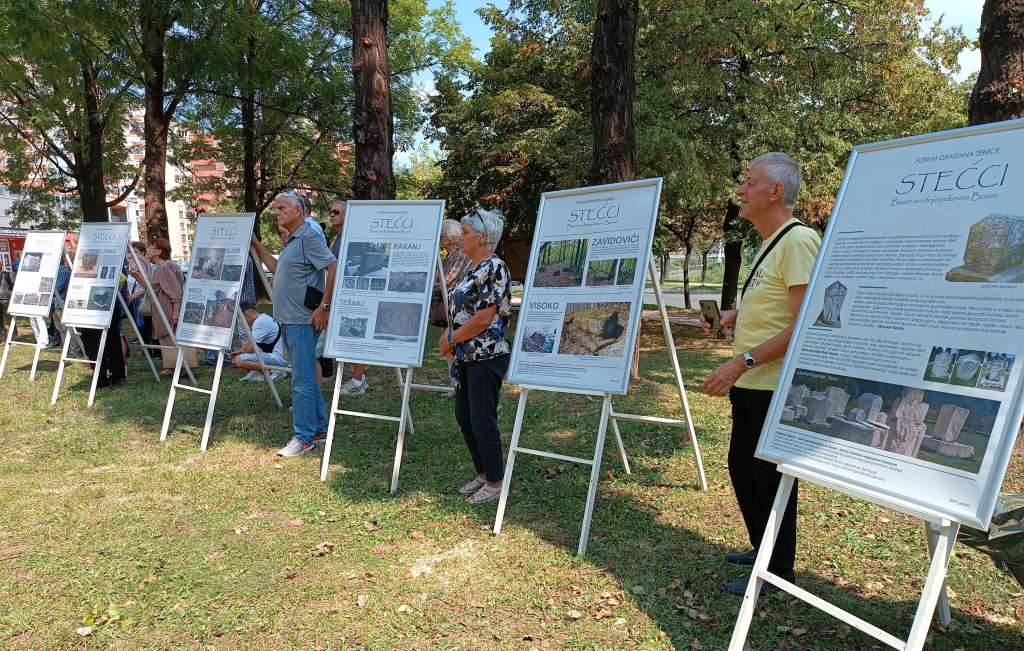ZENICA, August 29 (FENA) - The citizens' association "Citizens' Forum Zenica" traditionally, on the occasion of the date of the Ban Kulin Charter, on August 29, 1189, organizes the commemoration of this important date in the history of the state of Bosnia and Herzegovina in the Bana Kulin park on Bilino polje in Zenica.
The Charter was written in Bosančica script and is the oldest preserved state document of the State of Bosnia found so far, but also the oldest state document of the Southern Slavic peoples and states, and this year's history class was held by prof. Ph.D. Dževad Drino from the Faculty of Law, University of Zenica.
Drino pointed out that the return to medieval Bosnia is a return to "our own roots, our history, ourselves".

- We are talking about a document that belonged, according to Professor Darija Gabrić-Bagarić, to the administrative-legal sources of our Middle Ages, in addition to laws, wills, letters, gift certificates and the like. Depending on the expansion of Bosnia and relations with other medieval states, scribes from foreign regions will appear, who will then determine the style and language in the state scribal office - said Drino.
She adds that "it should always be repeated" that the Charter of Kulina bana is the oldest Bosnian state document and the oldest state document of all South Slavs and their states, as well as the second oldest document of all Slavs.
- Let's never forget that this is about the Slavs - the largest ethno-linguistic group in today's Europe! Let's remember that the first to use the term Southern Slavs was the great linguist Johan Adelung, in 1782, and the later coinage of Yugoslavia is also a German invention. The charter is a testimony of the culture of literacy and language of the early Bosnian state, a regulator of trade cooperation, freedom of movement of people, goods, and thus certainly ideas. After all, the German philosopher Herder wrote at the end of the 18th century that borders between individual nations will be established by linguists, not generals - noted Drino.
The first news about the appearance of the heretical teaching of the Bosnian Church, he reminds, came precisely during the Kulina Ban - from Duklja, Split, Hungary - which ended on April 8, 1203, with the Assembly on Bilina polje in Zenica. It was, he added, "a diplomatic victory for the Bosnian ruler Ban Kulin".
The vice-president of the Citizens' Association "Forum građana Zenica", Mirsad Mujkić, pointed out that the association is celebrating its 30th anniversary this year, and points out that they are particularly proud to have received the Plaque of the City of Zenica and today the Plaque of the Zenica-Doboj Canton. Children from the Public Institution for Preschool Education in the City of Zenica participated in the program, among others.
The Ban Kulin Charter was the first document issued by a Bosnian ruler, the Dubrovnik prince Krvaš and "all Dubrovnik citizens", who were allowed to travel and trade in Bosnia.
The Ban Kulin Charter has been preserved to this day in three copies, which are in the Dubrovnik archive, and the third copy was stolen in the 19th century and is today in Saint Petersburg, Russia, in the possession of the Academy of Sciences and Arts of Russia.
Since 2013, the Zenica-Doboj Canton marks the date of Charter as the day of the ZDC Day and awards it to deserving individuals, institutions, and collectives, and as part of ZDC Day, today's event was held in Ban Kulin Park.
(FENA) L. N.










